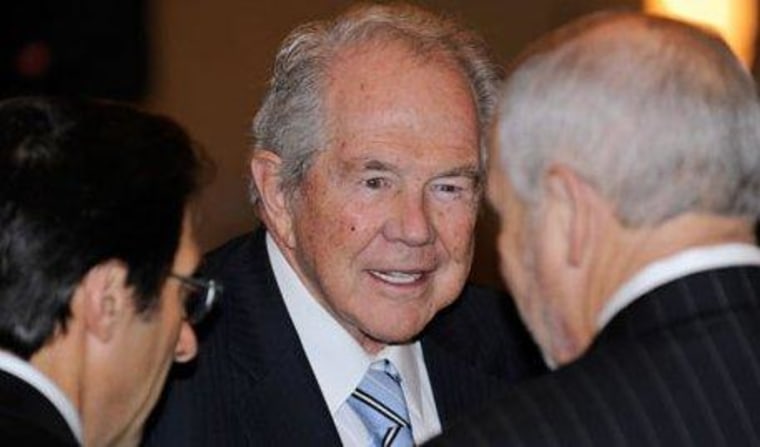To put it mildly, the religious right movement has fallen on hard times. Its wishes were largely ignored by their Republican allies during the Bush/Cheney era; they were dejected by President Obama's win in 2008; and these social conservatives were never especially comfortable with Tea Partiers, whom they saw as overly secular.
But conditions deteriorated further in 2012, which the movement had seen as a comeback opportunity. Not only did the religious right's allies lose badly in state and national elections, but voters moved to the left on social issues, including marriage, which appeared on the ballot. Evangelical efforts from Ralph Reed and the Graham family failed miserably.
R. Albert Mohler Jr., president of the Southern Baptist Theological Seminary, told the New York Times, "It's not that our message -- we think abortion is wrong, we think same-sex marriage is wrong -- didn't get out. It did get out. It's that the entire moral landscape has changed. An increasingly secularized America understands our positions, and has rejected them."
The question is what socially-conservative, politically-active evangelicals intend to do about it. Jim Daly, who succeeded James Dobson as head of Focus on the Family, is answering the question in an exceedingly provocative way (thanks to Tricia McKinney for the heads-up).
...Daly threw the considerable resources of his organization - which opposes abortion and same-sex marriage - behind the campaign to defeat President Barack Obama, paying for millions of mailers that listed the presidential candidates' positions on issues that were important to "values voters."In the aftermath of the election, however, Daly is willing to say things that few conservative evangelical leaders are likely to say. He believes, for instance, that the Christian right lost the fight against same-sex marriage in four states in part because it is on the losing side of a cultural paradigm. He says the evangelical community should have been considering immigration reform years ago, "but we were led more by political-think than church-think."And, along the same lines, he argues that evangelicals have made a mistake by marching in lock step with the Republican Party.
Daly specifically told McClatchy, "If the Christian message has been too wrapped around the axle of the Republican Party, then, (a) that's our fault, and, (b) we've got to rethink that."
That's a rather striking thing for the head of Focus on the Family to say out loud.
This won't surprise those familiar with the evangelical community, but there's long been a quiet divide among many social conservatives. Most believe strongly in positioning themselves as foot soldiers in a culture war, combating perceived social ills -- church-state separation, reproductive rights, sexual-orientation diversity, etc. -- while electing like-minded candidates to public office.
But there's another group who take seriously John 18:36, in which Jesus said, "My kingdom is not of this world." For these Christian conservatives, the idea of aligning their faith with a political party and political ideology has always been a poor fit -- their focus is less on this kingdom, and more on the next.
This latter group was largely pushed aside years ago as radical televangelists like Pat Robertson and Jerry Falwell became influential political players, and the religious right became a legitimate, full-fledged movement, but Daly's comments suggest the "not of this world" contingent hasn't disappeared, and may yet soon grow.
After all, social conservatives are on the wrong side of history, and the arc will continue to bend towards justice whether they like it or not. The religious right can stubbornly refuse to accept this, and fight a culture war against a more tolerant American mainstream, or they can reconsider the underlying merit of their mission.
I don't want to overstate matters. The obituary for the religious right has been written many times, but the political movement, to varying degrees, has persevered through difficult times before. It's easy to imagine Republican presidential candidates in 2016 and 2020 showing up at the same Christian conservative conferences, repeating the same pandering talking points to the same evangelical activists.
But this is an old, white, out-of-touch movement, lacking credible leaders and direction, being left behind (no pun intended) by a culture that's younger, more diverse, more secular, and more progressive on social issues.
It may very well be time to give up on changing this "kingdom," because it's unlikely to ever meet their standards and expectations.
